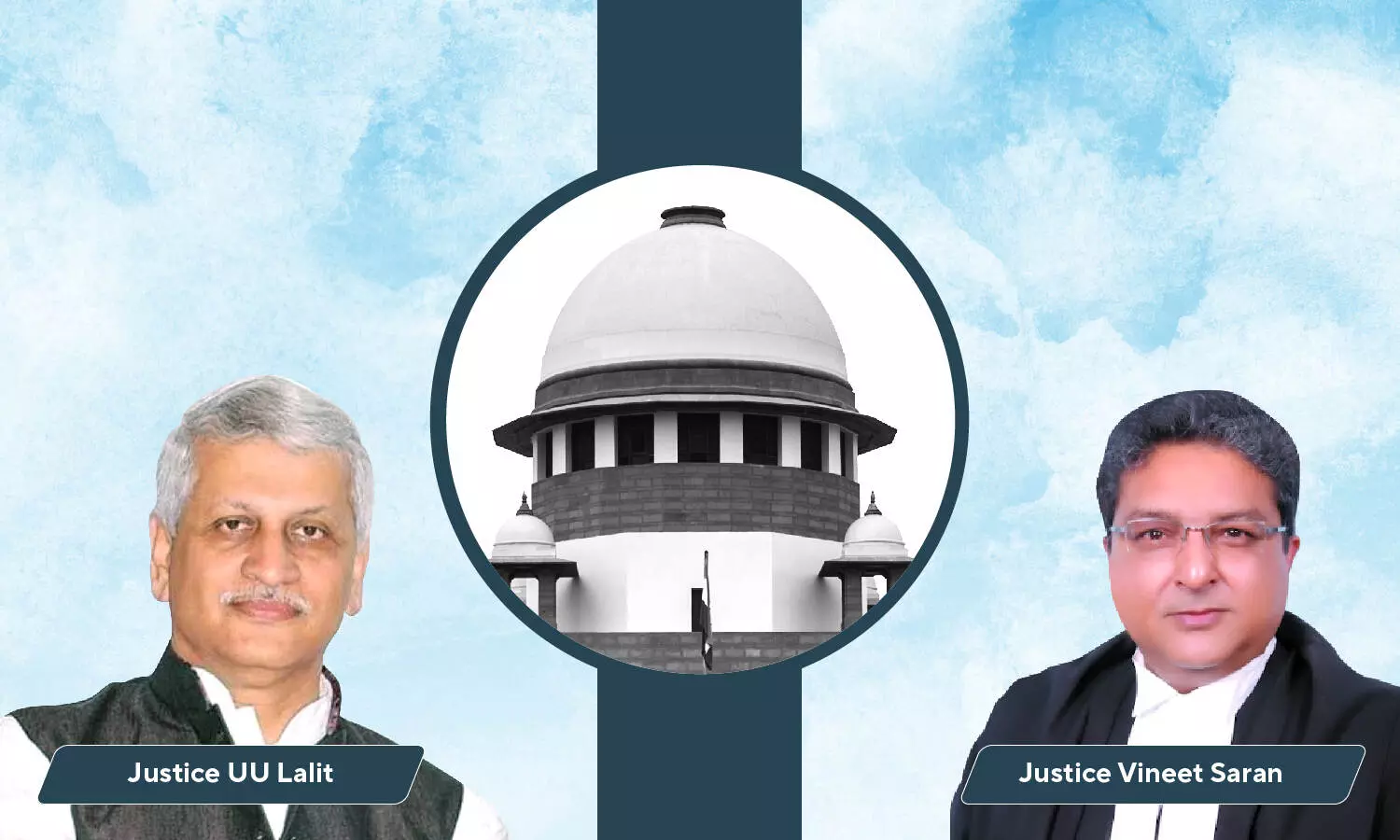
Decision Of Expert Bodies Like PSC Should Not Be Lightly Interfered With: SC Reiterates
 |
|A two-judge Bench of Justice UU Lalit and Justice Vineet Saran was considering, in appeal, the judgment of the Allahabad High Court. The State Government had invited applications from male candidates for filling up 2400 posts of Sub-Inspector, 210 posts of Platoon Commander (PAC) and 97 posts of Fire Officer (Grade-II) in Uttar Pradesh Police. The procedure entailed an online written examination, a physical standard test, and a physical fitness test.
Mr. Vinod Diwakar, AAG advanced submissions on behalf of the State. There were various advocates who represented the candidates supporting the State and the other set of candidates who constituted the Respondents.
A similar notification was published qua 600 posts of SI Nagrik Police for female candidates.
A writ came to be filed in the High Court by candidates who had secured more than 50% marks. It was averred that the Uttar Pradesh Police Recruitment and Promotion Board, Lucknow had wrongly applied the normalization process by issuing call letters to all candidates who had not obtained more than 50% raw marks but had secured more than 50% normalized score.
An amendment application was filed which was allowed by the Single Bench of the High Court. An interim order was passed in a batch of Writ Petitions directing that no appointment letter should be issued to selected candidates. This order was modified by the DB. The order of DB was challenged via an SLP which was disposed of.
A Special Division Bench was constituted at the High Court. The Special DB allowed the Writ Petitions. Hence, the appeal, before the Apex Court.
The Court considered Rule 15 of the Uttar Pradesh Sub-Inspectors and Inspectors (Civil Police) Service Rules, 2008 [2008 Rules] and the scope of the amendment introduced to the said Rule.
The Court noted that the amended Rule 15 warranted that the marks obtained in the written examination would be the determining factor subject to candidates fulfilling/meeting the qualifying marks and qualifying at the stages in scrutiny of documents, physical standard test, and physical efficiency test.
The question that the Court was to consider was as to the stage at which the process of normalization was required to be adopted or applied.
After considering various previous decisions of the Court on "scaling of marks" the Court noted that in the instant matters there were more than 6.3 lakh applicants who had submitted online application forms, which was a differentiating factor from other authorities. The Court noted that sealing of marks has been accepted to be an appropriate method where candidates are tested in different subjects.
The Court noted, "The process of 'scaling of marks' or normalization was inevitable in the instant matter and was necessarily required to be undertaken".
Considering Rule 15(b), the Court made the following observations.
"If the intent is to see that every candidate must have obtained minimum 50% marks and those 'candidates failing to obtain 50% marks in each of the above subjects shall not be eligible for recruitment' as mandated by Rule 15(b) of Recruitment Rules or by paragraph 9 of the notification dated 28.6.2017, even going by the context and purposive interpretation, the expression 'marks' must be given the same meaning at both the stages; and the only possible meaning that can be ascribed is 'normalized score'. Adopting different standards as suggested by the learned counsel for the respondents would result in anomalous situations. Such anomaly will however stand removed if the expression 'marks' appearing in Rules 15(b) and 15(e) stages is construed in the same light and as 'normalized score'."
The Court noted that the Board was right in adopting normalization at the initial stage and the power exercised was well within the jurisdiction.
The Court reiterated, "Decisions made by expert bodies, including the Public Services Commissions, should not be lightly interfered with, unless instances of arbitrary and mala fide exercise of power are made out."
The Court allowed the appeals and set aside the judgment of the High Court. The Court held that results declared should be given effect as early as possible.
Click here to read/download the Judgment